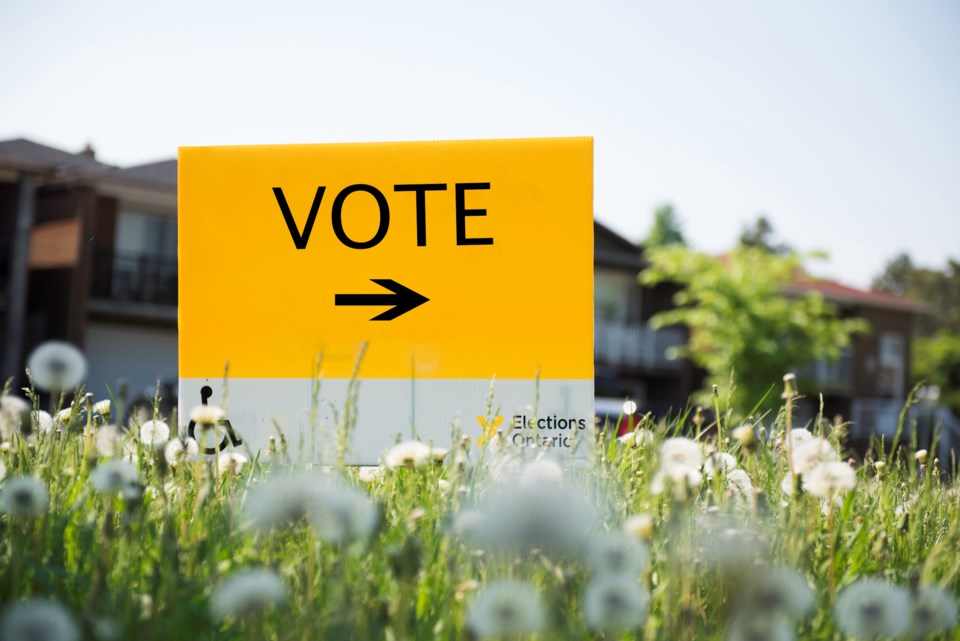As of this moment, elections will take place in three Canadian provinces in 2023: Alberta, Manitoba and Prince Edward Island. There has been speculation that these will not be the only opportunities for Canadians to cast ballots over the next 12 months.
At the federal level, just over two years have passed since the Liberal Party of Canada was returned to power with a minority government. The Liberals entered into a supply and confidence agreement with the New Democratic Party (NDP) that is supposed to see the current minority administration in place until 2025.
When Research Co. and Glacier Media asked Canadians about this deal in October, the public was staunchly divided: 44 per cent were satisfied with the accomplishments of the partnership in Ottawa and 44 per cent were not. At the same time, we also outlined growing support for the Conservative Party of Canada in Ontario, even if party leader Pierre Poilievre was still trailing incumbent Justin Trudeau on the “best prime minister” question.
NDP leader Jagmeet Singh has voiced dissatisfaction with the pace of change that was heralded by the supply and confidence agreement. This does not mean that the NDP is ready to walk away from the deal. In other countries with parliamentary systems, the small partner in a coalition or agreement usually suffers losses in the next election. It is easy for the “senior” party to claim victory in policy implementation, while the “junior” party is left to explain how its participation actually helped. No example is clearer than the Liberal Democrats in the United Kingdom, who went from wining 62 seats in the House of Commons in 2010 to only eight in 2015.
Canada’s other federal parties with representation in the House of Commons are going through changes. The Green Party of Canada’s revival is in the hands of its previous leader, albeit in a shared role that mirrors the way other environmentalist organizations function in Europe. The Bloc Québécois may be tempted to bask in the profile that has been attained by the provincial Parti Québécois for its anti-monarchy stance, which could lead Liberal opponents to look at the Conservative Party as an option.
In any case, the main participants of a 2023 federal campaign, if it happens, will be the Liberals and the Conservatives. We can expect the federal government to focus on economic management and the opposition to suggest that they would do a better job running things. The feat for Poilievre will be to reconnect in urban areas where his party used to do better under Stephen Harper.
In British Columbia, David Eby has taken over as premier, in a cabinet where some ministers shifted, and other stalwarts remained in place. While there have been many occasions in which an early election has been ruled out by the governing party, there is always a chance. Eby has signalled an intention to achieve broader co-operation with municipal governments. The conclusion of the debate over policing in Surrey, as well as the pace of housing starts in all of Metro Vancouver, could become blessings or curses.
At this point, the timing of the next provincial ballot will depend on the performance of the Opposition. The approval rating for BC Liberal Party leader Kevin Falcon hovered around the 40 per cent mark during 2022. Falcon’s predecessor Andrew Wilkinson started in similar circumstances: A former cabinet minister running as an opposition leader. Falcon is expected to surround himself with seasoned campaigners who will develop policy and avoid Wilkinson’s gimmickry, such as 2020’s proposed one-year break from the provincial sales tax (PST) that, while heralded by overly partisan individuals on social media, failed to attract voters.
If a provincial election indeed takes place this year, Falcon faces two other challenges: A rebrand and candidate selection. There may not be enough time to implement everything that is related to changing the party name to BC United during an early election, which would mean one more ballot under the BC Liberal brand. This may complicate the search for contenders in ridings who would probably be happier running under the new banner. Nowhere is this more crucial than in the Fraser Valley, where the rejection of long-time party members was massive in 2020, and, in the case of Rich Coleman, even extended into municipal politics in 2022.
The BC Green Party and the BC Conservative Party have much to gain as well. Disenchanted BC NDP voters may look at the Greens as an option to support if Eby does not take a cautious approach to climate change. The BC Conservatives have previously lacked the capacity to run in every riding, rendering those improperly designed surveys where they are at 12 per cent obsolete. This time could be different if the organizational capacity is there.
Political observers in British Columbia may point to the experiences of 2020 and 2021 to suggest that we will indeed have early provincial and federal elections in 2023. There are some key differences. In 2020, BC Premier John Horgan needed a majority and capitalized on a public that both knew him well and was satisfied with the way COVID-19 was handled. Eby’s situation is different. The province for the most part remains happy with pandemic management, but he is not as well known at this stage.
At the federal level, the Liberal Party would be wise to steer clear from the tactics of the Democratic Party in the United States that led to Donald Trump’s victory in states that were deemed impenetrable in 2016. Offensive comments such as “basket of deplorables” brought both voters and money to the Republican party. Poilievre, with the full backing of the Conservative base, is not a rival to be minimized or taunted.
Mario Canseco is president of Research Co.




